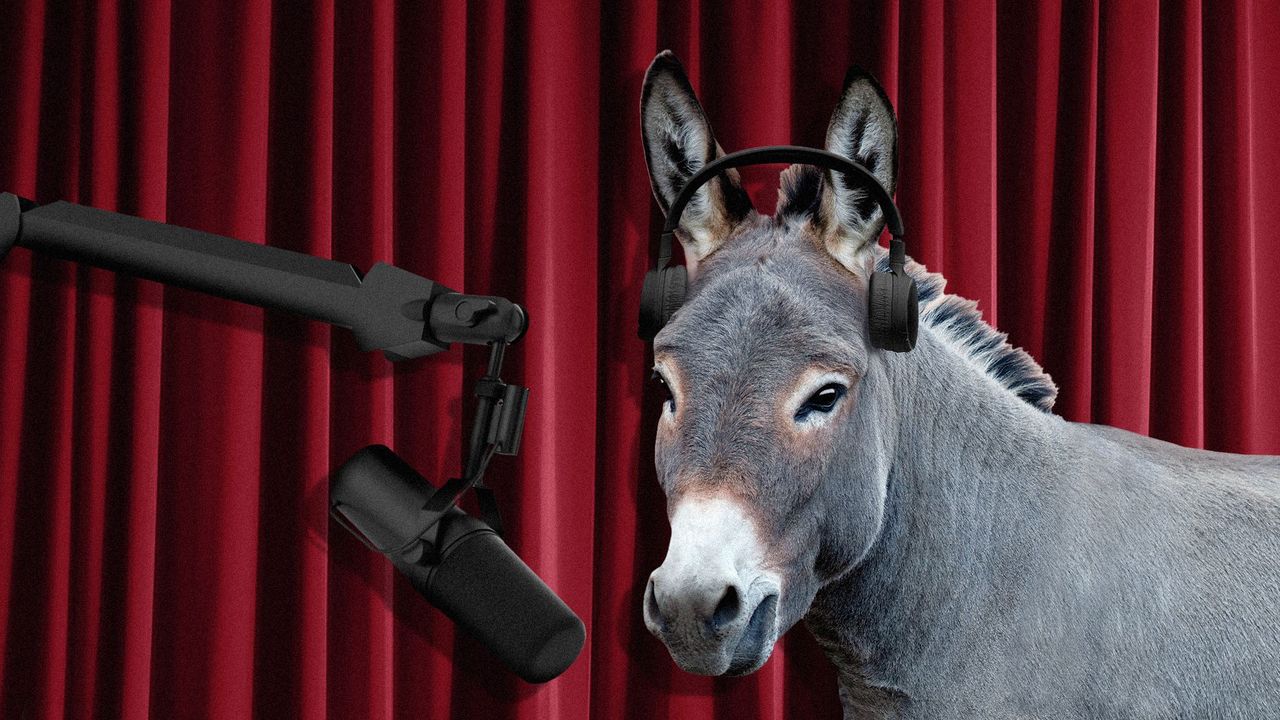These Democrats aren't fully dismissing DOGE. It could give Elon Musk and Vivek Ramaswamy a serious bipartisan boost.
AP Photo/Jose Luis Magana
- Some Democrats are dismissing the forthcoming DOGE push to cut wasteful government spending.
- Others in the party aren't totally writing off what Elon Musk and Vivek Ramaswamy are selling.
- Several key progressives believe they can work with the DOGE regarding the defense budget.
President-elect Donald Trump has grand plans to reduce the size of government, and he wants to use the forthcoming Department of Government Efficiency as a vehicle to make his intentions a reality.
Tesla CEO Elon Musk and businessman Vivek Ramaswamy, the incoming co-leads of the commission, have said they want to cut $2 trillion from the federal budget by July 4, 2026.
While many Republicans are fully onboard with the prospect of axing federal departments, a large number of Democratic lawmakers will likely be opposed to such efforts.
With Democrats still smarting from Vice President Kamala Harris' election loss and keenly aware of the extent of Musk's financial support of Trump in the 2024 race, rank-and-file members may not be inclined to aid the DOGE.
However, several Democrats, including Reps. Ro Khanna of California and Jared Moskowitz of Florida, have already signaled that they want to be a part of the conversation regarding any proposals.
Here are the congressional Democrats who could potentially give DOGE's recommendations a bipartisan boost:
Anna Moneymaker/Getty Images
Moskowitz was the first Democratic lawmaker to join the House's DOGE caucus, which will partner with the DOGE commission and look into ways to rein in spending.
The congressman in December told Business Insider that his overall mission is to reorganize the Department of Homeland Security so the Federal Emergency Management Agency (FEMA) and the Secret Service reports squarely to the commander-in-chief.
"If this is where that conversation is going to happen, I'm happy to be at the table," Moskowitz said. "And if they want to do stupid stuff, I'll call it out and I'll vote against it."
In a recent NPR interview, Moskowitz said joining the DOGE caucus isn't an indication that he's fully embracing Trump's legislative worldview.
"On some issues I'm progressive. On other issues I'm conservative, and I think that's how most of my constituents are," he said.
Tom Williams/CQ-Roll Call, Inc via Getty Images
Hoyle is another Democratic lawmaker who's joined the DOGE Caucus and is firmly standing behind the decision.
In a recent statement, she said she came to Washington "to be in the rooms where the tough conversations are happening" — while also affirming her commitment to protecting Social Security.
"I oppose cuts to the Social Security Trust Fund — always have and always will," she said.
"The DOGE Caucus is a forum to discuss ways to find savings in the budget," she continued. "Anyone who thinks there aren't opportunities to make government more efficient and effective is not living in the real world. This isn't a partisan issue."
Chip Somodevilla/Getty Images
Khanna, who represents a district that includes a chunk of the Silicon Valley, is known for his progressive views. He has crossed the aisle on a range of issues, including legislation involving technology and veterans.
"President Trump signed five of my bills in his first term. I think I was the California Democrat who had the most bills signed by him, and it's because I looked for areas of common ground," Khanna said in a December interview with Spectrum News.
Regarding the DOGE, Khanna said he hopes to work with the commission to root out wasteful spending in the Department of Defense.
"American taxpayers want and deserve the best return on their investment," he recently wrote in a MSNBC op-ed. "Let's put politics aside and work with DOGE to reduce wasteful defense spending."
John Nacion/Getty Images
During a November appearance on Fox News, Coons, a close ally of President Joe Biden, seemingly expressed an openness to some of DOGE's goals.
"They could save tens or even hundreds of billions of dollars," he said at the time. "Depending on how it's structured and what they do, this could be a constructive undertaking that ought to be embraced."
Coons also threw cold water on the $2 trillion figure, arguing that "there's no way" to make such dramatic spending cuts without impacting programs like Social Security, Medicare, and Medicaid.
Andrew Harnik/Getty Images
Sanders, a longtime progressive champion, turned heads when he wrote on X that "Elon Musk is right" regarding the need to tackle wasteful spending in government.
"The Pentagon, with a budget of $886 billion, just failed its 7th audit in a row. It's lost track of billions," he said. "Last year, only 13 senators voted against the Military Industrial Complex and a defense budget full of waste and fraud. That must change."
Andrew Leyden/NurPhoto via Getty Images
Suozzi, a Long Island congressman known for his moderate brand of politics, said he looked forward to Musk and Ramaswamy's high-profile December visit to Capitol Hill to meet with lawmakers. However, Suozzi wrote on X that he was told the meeting wasn't open to Democratic members, a development he said was "unfortunate."
"I would have liked to attend the meeting and explore whether there are any opportunities to work across party lines to promote cost savings and efficiencies," he said. "Many of us on this side of the aisle share both the goal of making government more efficient, and actually have experience doing it."





